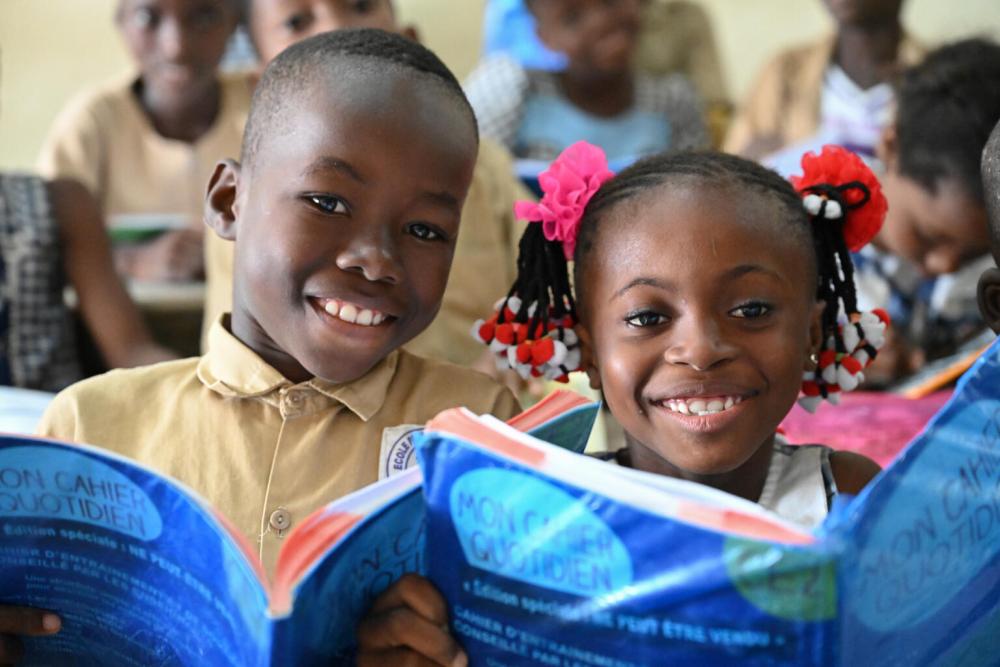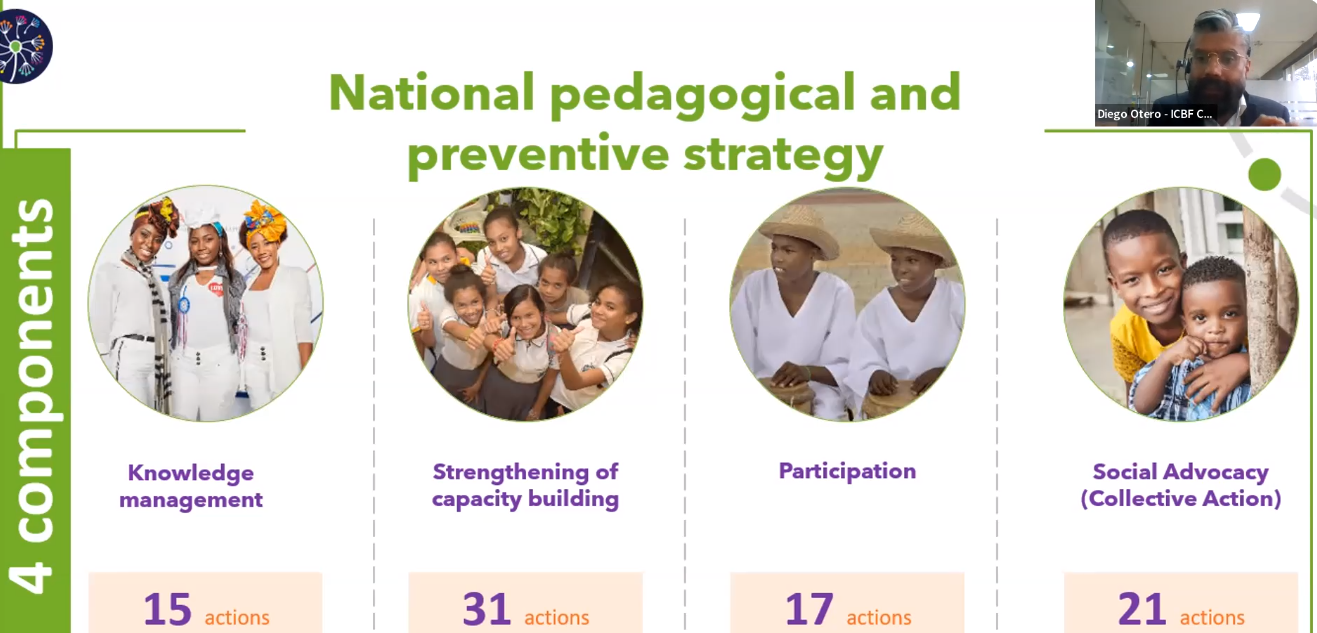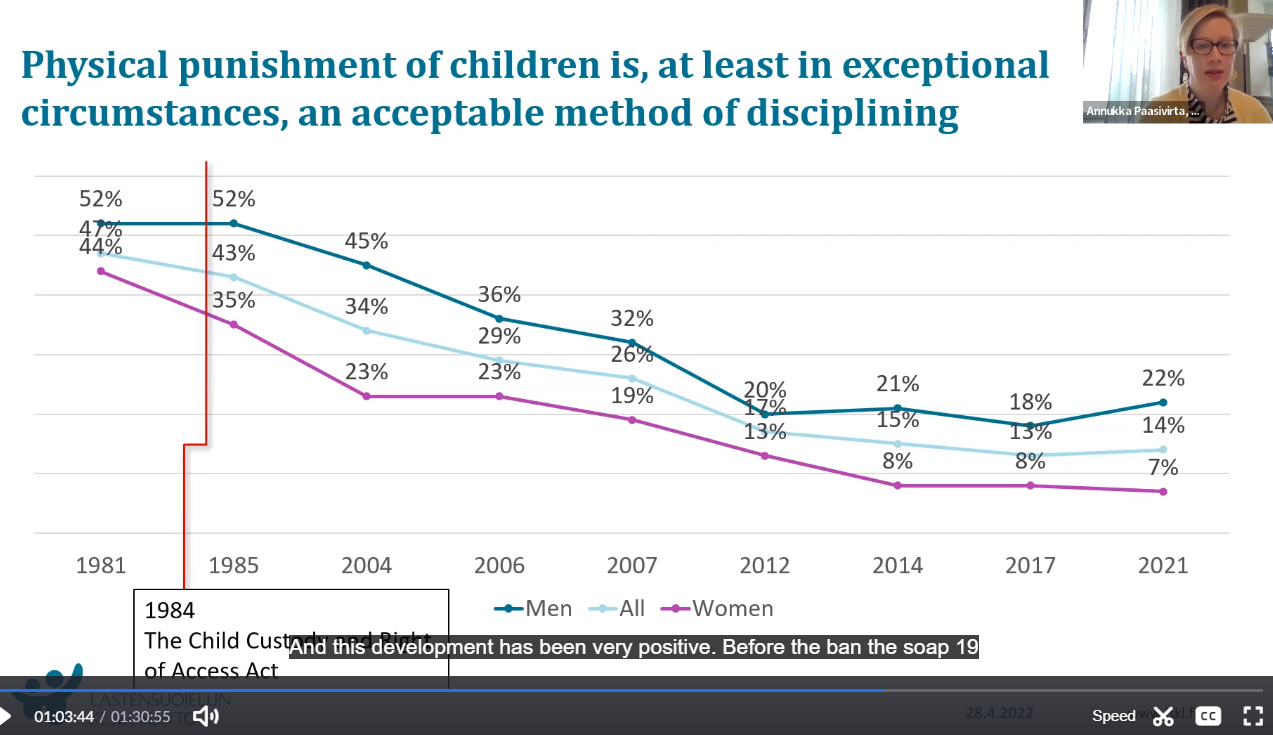
Pathfinding Learning Exchange
In the context of the International Day to #EndCorporalPunishment 2022, on 28 April 2022 the End Violence Partnership held a learning exchange for Pathfinding countries to share their experiences of working to end corporal punishment of children. Representatives from Colombia, Georgia, South Africa, Cote D’Ivoire, Finland and Philippines talked about the progress being made to eliminate violent forms of discipline and make safer childhoods for children in their countries. They were joined by participants from 34 countries.
Corporal punishment is the most common form of violence against children. Worldwide around 4 in 5 of all children aged 2-14 years are subjected to it in their home every year (physical punishment and/or psychological aggression). Corporal punishment is a violation of children’s human rights, and a large body of research connects violent punishment with multiple harmful impacts for the child and society, and substantial economic costs.
You can watch the recording of the learning exchange here.
Diego Felipe Otero, Coordinator of the National Alliance to End Violence Against Children and Adolescents at the Institute for Family Wellbeing, Colombia presented the country’s new National Pedagogical Strategy for the Prevention of Physical Punishment, Cruel, Humiliating or Degrading Treatment 2022-2030. Deigo described the critical role of the Violence Against Children Survey (VACS) 2018, the INSPIRE framework and the enactment of laws in the strategy.

Maka Peradze, Head of The Human Rights Secretariat in Georgia explained that corporal punishment of children has been prohibited since 2019. The Second National Child Right’s Strategy based on the INSPIRE package will include measures to eliminate corporal punishment, including promotion of positive parenting, training for professionals and a public awareness campaign about the harms of physical punishment of children.
Sammy Maraba, Assistant Director in the Department of Basic Education in South Africa discussed progress and challenges in eliminating corporal punishment in schools. The legal ban is supported by programmatic interventions including training on non-violent discipline for teachers and a protocol for dealing with cases of corporal punishment.
You can view Sammy’s slides here.
“Institutions must work hard to change stereotypes and instill a culture of positive discipline in homes and schools. Pupils should also be provided with positive discipline training.”
Sammy Maraba, Assistant Director in the Department of Basic Education in South Africa
Hervé Aka of NGO Graines de Paix, described the work being done to end corporal punishment in Cote d’Ivoire. A 2009 Ministerial Order was issued against the use of corporal punishment in schools, accompanied by a code of conduct for teachers. Graines de Paix focuses on teacher education and sensitisation, including training on positive discipline and students’ emotional management. They aim to break the intergenerational cycle of violence by exposing children to positive discipline from school.
When we take away violent methods we must provide parents and teachers with alternative non-violent methods.
Joseph Biagne, Guede Education Inspector, Cote d’Ivoire said that the main challenges in ending corporal punishment in schools include community resistance and the fact that physical punishment continues to be inflicted by teachers with parents’ support. Increased reporting of cases and training for teachers are being implemented to reduce its use.
Annukka Paasivirta, Senior Adviser at the Central Union for Child Welfare, Finland described the country’s long commitment to ending corporal punishment of children. Four decades after physical punishment was prohibited, 88% of the population do not support corporal punishment in any circumstances. The Non-Violent Childhoods Action Plan 2020-2025 is the latest strategy for ending all violence against children in Finland.
You can view Annukka’s slides here.

Camille Grace Cariaga, Senior Technical Assistant at the Department of Education Child Protection Unit, Philippines talked about their zero-tolerance policy to corporal punishment in schools, and work to raise awareness and build capacity through training for teaching and non-teaching staff.
You can view Camille’s slides here.
Prohibition and elimination of corporal punishment is a key strategy in the INSPIRE framework for ending violence against children. Evidence shows that countries that take steps to prohibit and eliminate corporal punishment see an ongoing decline in the use and approval of physical punishment and other forms of violence against children.
Read more the Pathfinding, INSPIRE Strategies and Ending Corporal Punishment.